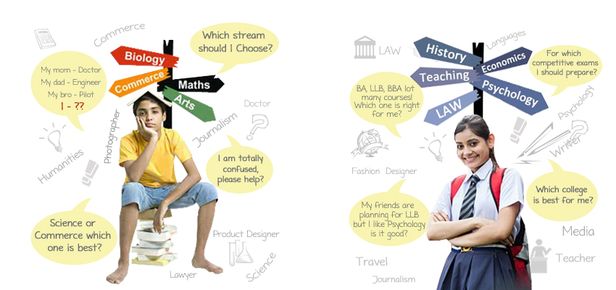
How do I choose a career counsellor for my child?
July 24, 2020
Career counselling session
July 24, 2020Text by Natasa Ivanovska
A child’s well-being without a doubt are the priority of any responsible parent, who takes care of a child’s wellbeing since the day they arrive on this earth. With the general responsibility of raising them and putting them on the right path, the parent puts in effort, good intentions according to their capacity, to get the child a future where they’ll be able to “find their happiness”
Nonetheless, the parent’s best intentions aren’t always a guarantee their success in the role of a career counsellor, who’s role they have to fulfill. Support, understanding, believing in the child and their capabilities, being interested in their subjects and working with questions – Those are the basic principles of the career counselling that a parent can fulfill. The other career counselling, is generally best left to a professional.
What does a child get from work with a counsellor?
1. The ability to talk freely with no parental expectations
The need to be generally accepted by parents, especially at a young age, is associated with
survival by the typical child. To fulfill parental expectations, to fit into the image of a “good
kid”, even when there’s a high level of security and attention – all of that has an effect on a
child when they’re talking about their future. This exists even when a parent is open,
supportive and generally a part of the process.
2. An opportunity for it to find out what it wants
For many children the question of “what do you want to work with, or what are your
interests” results in a resounding – I have no idea. This is especially true in elementary and
middle school, when the child gets in touch with certain subjects with the first time. The
interest for a specific subject, could be under the influence of a certain professor, one who
knows how to make their subject interesting. In a conversation with a career counsellor, the
nuances of a certain subject can be touched and put into relation with a certain career path.
There are tests utilised by the counsellors, and they’re used to their full potential in
uncovering the child’s interests.
3. Starting to think about professions and career paths and not school subjects
When talking to a counsellor, the main subject is – what do you want as your job, how would
that look, why is that a good choice for you, instead of – what school are you going to go to.
The earlier a child starts to explore "What they want to be when they grow up" the better
their decision making in that area will be.
4. Being able to take up responsibility.
When a child makes the choice of what they want to do as their job, they have the
motivation to put effort into what they see as fun or useful. The responsibility to push the
child into the direction that they chose remains on the parent’s shoulders.
5. Decision making skills
A large part of decisions that have to do with the child, are in the early stages of their life
carried by their parent. Where they’re going to go, what they’re going to do, what they’re
going to eat etc... And so, when going into high school a child needs to make a decision that
has a big impact on their future. When working with a counsellor, they acquire the ability to
make informed decisions that will have a significant positive impact on their life in the
future.
Even when a parent thinks they know what’s right for their kid and has things lined up for them, it’s necessary that they secure their child a career counselling session. The final decisions are always made within the family, where it’s possible to discuss the insights and conclusions of the career counselling. When everything that was brought up during the career counselling is brought to the table, the chances of a child making the right decision/s go up significantly.
Working with a career counsellor, learning from elementary and middle school, has a significant positive outcome on the general future of a child.
A child’s well-being without a doubt are the priority of any responsible parent, who takes
care of a child’s wellbeing since the day they arrive on this earth.

